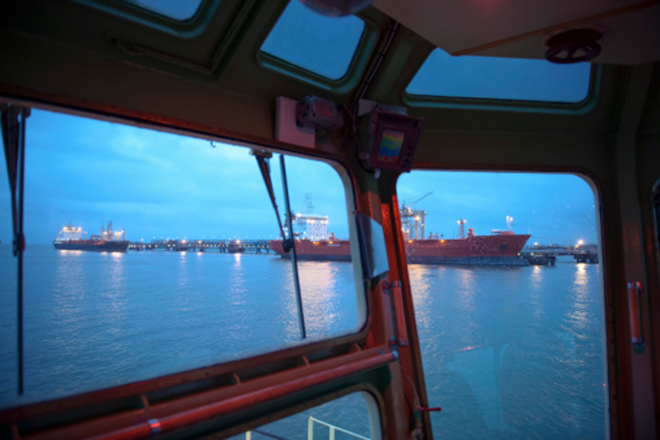S&P Global Offerings
Featured Topics
Featured Products
Events
S&P Global Offerings
Featured Topics
Featured Products
Events
S&P Global Offerings
Featured Topics
Featured Products
Events
Banking & Capital Markets
Economy & Finance
Energy Transition & Sustainability
Technology & Innovation
Podcasts & Newsletters
Banking & Capital Markets
Economy & Finance
Energy Transition & Sustainability
Technology & Innovation
Podcasts & Newsletters
S&P Global Offerings
Featured Topics
Featured Products
Events
30 Jun, 2022
By Ben Dyson and Camilla Naschert
 View of oil tankers from a tug boat.
View of oil tankers from a tug boat.
Source: Monty Rakusen/Image Source via Getty Images
Proposals to use insurance as a tool to impose price caps on Russian oil exports are both impractical and complicated, according to marine insurance specialists.
Plans floated at a June meeting of the G-7 countries would, in theory, prevent insurers in those nations from providing insurance cover to ships carrying Russian oil if the price of crude was above a certain point. The G-7 is looking to curb oil price rises, which would help Russia fund its war on Ukraine.
"We understand the political intention behind it, but it wouldn't work in practice," Lars Lange, secretary general of the International Union of Marine Insurance, or IUMI, said in an interview. "It is simply too complicated."
Insurers say they would struggle to determine when sanctions would apply to them.
Neither vessel owners nor insurers are able to verify the price of cargo as they are not parties to sale contracts, according to Mike Salthouse, chair of the sanctions committee at the International Group of Protection and Indemnity Clubs.
"We currently consider it unlikely that any price cap mechanism that might be agreed by states will rely on a vessel's insurers or the vessel owner to give it effect," Salthouse said in an email.
The International Group is a consortium of 13 marine mutual insurers, known as protection and indemnity clubs. The consortium provides liability cover for more than 90% of the world's ocean-going tonnage, according to its website.
Lange said a further issue for insurers is that the price of oil fluctuates, making it difficult to determine whether the cap had been breached for a particular shipment. The amount of detail insurers would need to consider a price cap proposal, and the potential for unintended mistakes, could deter insurers from offering any cover, Lange said.
The precise mechanism for enforcing any cap is still to be decided.
"We will consider a range of approaches, including options for a possible comprehensive prohibition of all services, which enable transportation of Russian seaborne crude oil and petroleum products globally, unless the oil is purchased at or below a price to be agreed in consultation with international partner," the G-7 said in a June 28 communique.
Keen to listen
On the plus side for the industry, Lange said there has been "a really good dialogue" between insurers and those working on the price cap plans, even though the industry will not be directly involved in negotiations. The IUMI was in close conversation with the preparation teams ahead of the G-7 summit, Lange said.
While critical of using insurance to enforce the price cap, Lange said the marine insurance industry would do its best to comply with any sanctions stemming from the Russia-Ukraine war.
A spokesman for the International Underwriting Association of London, or IUA, which represents underwriters outside Lloyd's of London, said the body has been monitoring all sanctions-related developments to help ensure its members are fully compliant with measures related to their business. The IUA did not directly comment on the price cap proposal.
The European Union announced its intention to stop insurers from covering vessels carrying Russian oil on May 30 as part of a wider package of measures to restrict imports of Russian oil and oil products. The U.K. is expected to follow the EU in banning insurance of ships carrying Russian oil.
